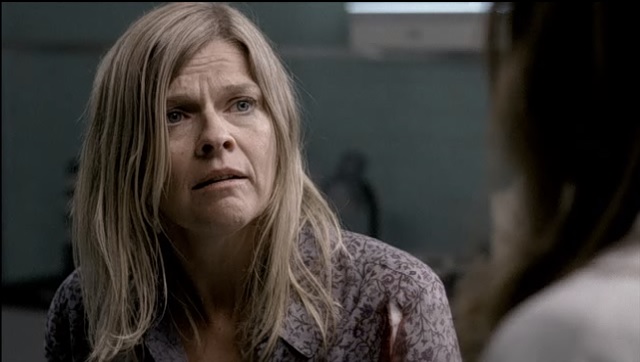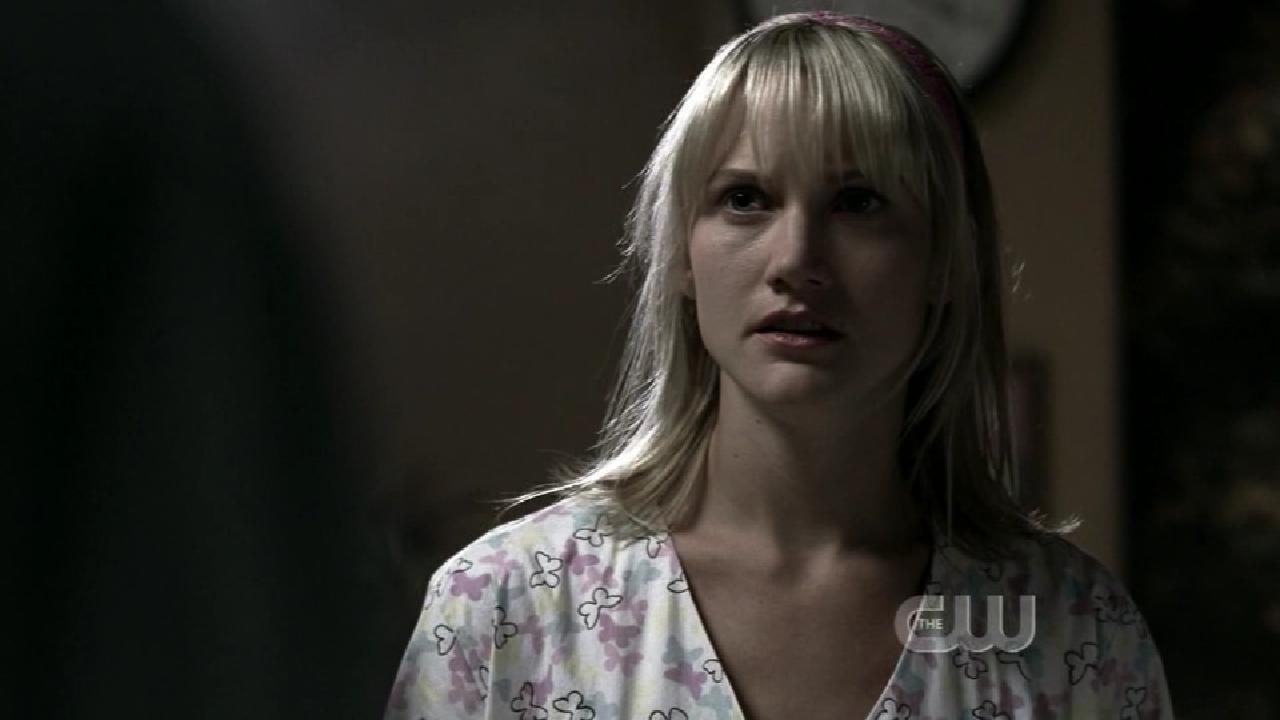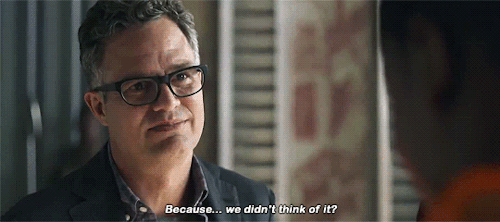
Dead Girlfriends in the Time of COVID-19: Part 3
April 10, 2020
Welcome back, my friends, to my ongoing miniseries that answers the not-at-all-burning question, "Have any of our contestants in the DFGRR lost a girlfriend to an epidemic?" (Answer so far: strictly speaking, no - but we're having fun researching!) Having dealt with Joe Cartwright of Bonanza and Captain Kirk of Star Trek in our previous entries, we turn now to Sam Winchester of Supernatural.
This show is now in its 15th season, with its planned May 2020 finale having been postponed due to the shutdown of Vancouver. This special report will therefore be in lieu of a full series analysis, for now.
This entry comes with a TW for sexualized violence. While the nature of this research project means that we will unfortunately encounter more than one sexual assault scene, and I make every attempt to be discreet, Supernatural is a more graphic show than our other competitors. If you're sensitive to this topic, feel free to just join us next post.
For those of you who don't watch it, allow me to set the scene a bit. Supernatural focuses on the Winchester family, which much like its Cartwright predecessor, is a clan full of living men and [un]dead women. In this case, the men are Dean (Jensen Ackles) and Sam (Jared Padalecki), two brothers whose mom was murdered by a demon in 1983. Their father, John, therefore raised them to become monster hunters. They crisscross the country in a 1967 Impala engaging in the family business, which is "saving people and hunting things." These "things" include (checks notes) ghosts, urban legends, werewolves, vampires, shape-shifters, phoenixes, ghouls, demons, angels, archangels, Leviathan, the biblical Eve, pagan gods, the Abrahamic God, God's sister, and Death.
Very few of the women they encounter make it out alive.
Has Supernatural had any episodes dealing with plagues?
Yes. In fact, it's had several plague plots. The very first was "Croatoan," which aired December 7, 2006. That was just slightly more than 13 years ago, and yet certain aspects of the episode now strike me as dated: 1) the brothers do not have cell service in a small Oregon town; 2) they're able to try an actual payphone instead; and 3) both actors are still young.
What else should we remember about 2006?
- At this point in the series, Dean was having anger issues, and Sam was having visions of other people's deaths.
- The Will Smith version of I Am Legend had yet to be released, so instead Dean references two other movies inspired by the same novel: "Chuck Heston in Omega Man" and Night of the Living Dead.
- The most recent epidemic in American popular memory was HIV/AIDS. HIV is, of course, spread mainly by asymptomatic carriers through blood-to-blood contact, and had been a slow-but-sure death sentence for the first 14 years of its documented history. Remember these facts for later.
What about the women?
Croatoan features not one but two doomed women: Mrs. Beverly Tanner, and Pam Clayton. Right off the bat, I must admit that neither of them is a love interest for the main character(s), which excludes them from my main study. But, for our pandemic-themed miniseries, I've decided to bend the rules slightly.
The adventure begins with Sam having a vision of Dean shooting an unarmed man in Rivergrove, Oregon. The brothers promptly head for that town, appointment-in-Samarra style. When they arrive, they find the word "Croatoan" carved into a telephone pole, which immediately makes them worry. "Croatoan" was, after all, the only clue left behind when the lost colony of Roanoke got, well, lost. Cue attempts to call for backup and the discovery that some[one/thing] has cut off all phone service to the town.
I will divide my analysis into two parts, one for each dead woman.
Part 1: Mrs. Tanner

The Winchester brothers start their investigation by searching for the man from Sam's vision. Based on Sam's description, one local resident suspects they're talking about Duane Tanner. The Winchesters head to the Tanner residence, but Duane isn't home. His brother and father are acting suspiciously chipper and asking far too few questions about why random strangers want to speak to Duane.
When Sam and Dean sneak around the side of the house, they find out why: father and son have the lady of the house, Beverly Tanner, tied up in another room. In fact, they are cutting her and themselves, and bleeding into her wounds. This is the first, but not last, instance of violence against women in this episode.
After a brief gunfight, the brothers bring the deceased Mr. Tanner and the wounded Mrs. Tanner to a local clinic, where they meet Dr. Amanda Lee and her nurse, Pam Clayton (about whom, more below)
Mrs. Tanner reports that her husband and son suddenly started acting strangely and attacked her. Dr. Lee examines the dead man's blood and determines that he was suffering from some kind of infection...one which left a sulfuric residue behind, which is a sure sign of demonic presence. Meanwhile, Dean attempts to leave town and get help, but finds every road barricaded and guarded by infected people. They attack him, demonstrating that this infection gives them super-strength, but he gets away. He, along with an uninfected-and-freaking-out resident nicknamed "Sarge," come back to the clinic around 15 minutes into the episode.
Have I mentioned that Supernatural likes to pack in the plot pretty densely?
OK, so we've got phones down, radios out, road out of town blocked, our heroes deducing that this is some kind of demonic germ warfare, and 3 men and 3 women making a last stand in an urgent-care clinic. Time for more violence against women!
Why is it time for more violence against women?
Well you see, there's a strong chance that Mrs. Tanner is infected with this mystery disease, seeing as her son mixed his blood with hers. Dr. Lee tries to take a sample to check for signs of sulfur viruses, but Mrs. Turner attacks her. Sam clocks the lady hard enough to knock her unconscious.
When she comes to, she's terrified and begs Sarge to rescue her. She says she's innocent in all of this and doesn't know why people keep attacking her. Dean responds to her pleas by shooting her dead.
You may well be wondering, "Why does he shoot her?" Well, he's afraid that she will get stronger and start infecting the rest of them. That appears to be what's happening with the rest of the town's residents, who are now surrounding the clinic. So obviously, this is a problem that can only be solved through murder.
Sam does have the decency to ask Dr. Lee if there's any chance this can be treated, but Dr. Lee is a general practitioner who's only had 20 minutes to think about it, so naturally she hasn't invented a cure yet. They have no choice but to kill Mrs. Tanner!
Don't they, though?
Uh, well, at least they don't seem to think they do.
Personally, if I were writing a horror plot in which a demonic plague was giving people super-strength, I might throw in some dialogue about how observing a living subject might help us study the disease's progression or test its effects. But I do digress.
So, is the rest of the episode just the Winchesters murdering the infected townspeople?
No. In fact, the unfortunate Mrs. Tanner is the only unarmed person they shoot in the whole episode. Shortly after her death, you see, it is time for...
The Moral Crisis of the Week
In minute 23, the missing Duane Tanner shows up at the clinic. He claims he was attacked by a group of his former neighbors. He's bleeding, but says it's from tripping while he was running away.
The group ties him to a chair while they try to figure out if he's infected. Unfortunately, the doctor has determined that this virus has a 3-hour incubation time, and there is therefore "no way of knowing until after he turns."
Dean is in favor of preemptively killing Duane, arguing that they "can't take the chance" of him "hulking out and infecting someone." Sam, however, strenuously objects on the grounds that Duane might be "an innocent man", which is an excellent point.
Of course, his mother was also "innocent," in the sense that she'd been forcibly infected with something that took away her free will. But she's already dead, so Sam sees no reason to bring her up again. Instead, he demands to know why Dean is so emotionally closed-off lately.
Yes, seriously. They start arguing about emotional vulnerability and whether having a clear conscience is even possible when your whole identity is wrapped up with hunting. Because those are definitely the main problems here, when they've shot two virus victims already.
Dean decides to finish this conversation by locking Sam out of the room. But, for some reason, he then prepares to shoot Duane in front of the other 3 civilians. Naturally, they're all terrified, Duane is crying and begging, and Dean finds he can't bring himself to shoot the kid.
Unlike his mother, whom - and I cannot stress this enough - Dean ruthlessly put down 10 minutes earlier.
This scene plays out like it's a huge, character-defining moment for Dean Winchester, with many close-ups on his trigger finger and his steely facial expressions. Giving the benefit of the doubt to a potential rage-zombie is apparently much more difficult than deciding what to do with a definite rage-zombie, even though neither rage-zombie was a clear threat to him, and both of them were clearly unwitting victims of a demonic attack.
Is there some sort of moral to this subplot?
Not exactly, although it appears there was supposed to be one. With the framing of this conflict between Sam and Dean, it seems the screenwriters were trying to make a point about suspicion and condemnation vs. trust and compassion in an emergency situation.
To my mind, however, it comes across more like, "shooting the woman was easy, but shooting the man is impossible." Or possibly, "it's OK to shoot the innocent victim of a demonic plague, provided you wait for her to be symptomatic."
OK, then.
Does Mrs. Tanner meet any measures of Fictional Female Agency (FFA)?
Strictly speaking, she does pass the Bechdel test, thanks to her brief conversation with Dr. Lee about whether she's infected. Unfortunately, she gets very little characterization outside of being a victim, and precious few minutes of screen time. She fails the Mako Mori test because, not only does she not have an independent arc, but it's also debatable whether she has any arc at all.
The Sexy Lamp test is a bit of a borderline case, since the narrative doesn't frame her as a prize. It does, however, frame her as a problem that men must solve. Men keep doing things to her: torturing her, bleeding on her, knocking her out, and fatally shooting her. At no point does she seize control of a situation or deliver a plot-altering line.
I must therefore award Mrs. Tanner the joint titles of Unwitting Test Subject, and Unwitting Victim.
Part 2: Pam Clayton

The other significant woman in this episode is Pam Clayton, a nurse at the urgent-care clinic. Pam, understandably, spends most of the episode scared.
Do the other characters listen to her?
No, not in the slightest. Pam is the first person to ask, "What if we all have it?" Considering this is a brand-new virus and nobody knows its symptoms yet, this is an excellent question. So, naturally, Sam's only response to it is to tell her to stay calm.
She misses a perfectly good opportunity to yell back, "I am calm," which is another sign that I did not write this episode.
Here, have an unrelated "I AM CALM!" GIF from Hocus Pocus.
No, Pam actually stays calm, more or less, because she's an obligingly quiet female character. She does, however, drop a vial of blood because of how nervous she is. She also repeatedly suggests that the whole group should make a run for it. Sarge keeps her there by pointing out that they can't expect to drive straight through a town full of armed rage-zombies without getting shot at.
So, they all stay put, make Molotov cocktails out of rubbing alcohol, and decide not to shoot Duane Tanner. (Pam's contribution to that decision consists of exclaiming, "Oh God, we're all gonna die.")
Does she live long?
Also no. About 2/3rds of the way through the episode, Dean and Dr. Lee decide to untie Duane because he does not appear to be infected. Pam walks away while they have this conversation, and Sam checks on her.
She locks the door behind him, and flirtatiously says, "It'll all be over soon...in fact, I've been waiting to get you alone this whole time." Suddenly, she knocks him down, kneels on his chest, pulls a scalpel, cuts him and herself, and forces her blood into his chest.
As it turns out, she was the one who was infected all along.
Dean shoots her dead. Sam, bloodied and moaning, reaches for Dean's hand for help getting up - but the rest of the group rejects him, because he's now contaminated.
Is it just me, or does that sorta remind you of something...?
Oh, it's definitely a rape allegory. A quiet and unassuming predator getting someone alone, flirtatiousness turning to violence, flinging a victim to the ground, the victim being too stunned to fight back, forcible exchange of bodily fluids - it all lines up.
In a final cruel parallel, this assault gives Sam a metaphorical STD with a huge social stigma attached. When I said, earlier, that you should remember how HIV is spread by asymptomatic carriers through blood-to-blood contact, this is why. Sam's sudden transformation from "teammate" into "danger to others," through a situation beyond his control, parallels the way innocent victims of the HIV pandemic have been thrown out of their schools and jobs, and even sometimes denied medical care. It also, unfortunately, foreshadows some of what we've now seen happen in the COVID-19 pandemic, with scapegoating of and hate crimes against Asian-Americans (who, it should go without saying, had nothing to do with COVID-19's coming to America.) In Supernatural as in real life, diseases don't discriminate - but people do.
Getting back to the woman, in the course of this 3-minute scene, Pam Clayton goes from "totally ordinary, asymptomatic person" to "symbolic rapist who gives Sam demonic HIV/AIDS". She then becomes "second woman Dean has shot today."
Is there some sort of moral to this subplot?
Yes. The lesson here is "beware of asymptomatic carriers." That conflicts with the point that the episode tried to make earlier, when Dean's decision not to shoot Duane was presented as a victory for the concepts of trust and waiting for evidence. However, it is perfectly in line with the earlier unintended moral, "it's OK to shoot the innocent victim of a demonic plague, provided you wait for her to be symptomatic."
Does Pam have any FFA?
Ironically, yes, she has more FFA than Mrs. Tanner. She doesn't pass the Bechdel test and she's no Mako Mori, yet she manages to avoid becoming a Sexy Lamp. She's not a prize to be won or a problem to be solved; she actively influences events towards her own ends. (The fact that those "ends" are "pathogen-spreading assaults" is besides the point.) She also plays a very important role in this plot: instigator of the Winchester brothers' weekly crying scene.
They have weekly crying scenes?
Yes. This particular one comes about because Sam, knowing there's no cure and this virus will turn him evil, offers to kill himself to keep the group safe. This is another uncomfortably prescient scene, in my eyes, because I recently saw a protest sign demanding that we "sacrifice the weak, save the economy." Speaking as a medically-weak person, I'm against the idea of trading lives like that. Luckily for Sam, Dean is also opposed. He sends Sarge, Dr. Lee, and Duane away in the Impala with Molotov cocktails for defense, while he stays behind to die with his brother.
The men get emotional.
Luckily, the Doctor comes running back to say that everyone in town has disappeared. 5 hours later, Sam's blood is still testing clean...and now, so is the blood from Mr. and Mrs. Tanner. Apparently this is a disappearing demonic rage-plague virus.
Everyone heads off to try to move on with their lives. Dr. Lee goes to find the county sheriff, Sam and Dean head off into the Impala, and Duane and Sarge drive off in a different car. It seems like this is about to be a happy ending for the main characters...
Whoops, until it turns out that Duane has been possessed all along. He kills Sarge, uses his blood to call Hell, and ominously says, "I don't think any more tests are necessary...As expected, the Winchester boy was immune." Dun-dun-DUN!
Wait, what? "The Winchester boy was immune"?
Oh, we do NOT have time to explain why that is. If you're interested in a rabbit hole, read more here.
Doesn't the twist ending sort of invalidate all morals of the episode?
Yup! As it turns out, Dean absolutely should've shot Duane when he had the chance. He also shouldn't have shot Mrs. Tanner, because they could've used her to study the disappearing factor of the virus. Finally, sweet, quiet, asymptomatic Pam was not the person they should've been most afraid of, because she was a hapless victim of Duane.
This episode therefore ends without a clear moral. Please note that this doesn't mean it's a bad episode of TV; it's definitely worth a watch, if you want a creepy plague narrative to help you sleep tonight. It just doesn't teach a clear textual lesson.
Are you going to end this blog without a lesson?
Of course not! I have a metatextual moral for this episode: "When you're in a crisis, don't develop tunnel vision." See, Sam and Dean Winchester have frequently tangled with demons, in multiple senses of the word. They are aware of several ways they could've tested whether anyone in their group was possessed: tossing holy water on them, seeing if they flinched when someone said the name of God, attempting an exorcism. So why didn't they try any of those on Duane when he mysteriously appeared? To quote Avengers: Infinity War:

Much of the tragedy in this episode could have been avoided if they had shifted their focus from "deciding whom to shoot" to "investigating literally any other course of action."
Why is this relevant, beyond screenwriting advice? Think about the news that we've seen in the past three months, as COVID-19 swept into the US. First, we argued over whether to close the borders - only to learn that the virus was already here and borders were irrelevant. Next, we fought about which states had enough ventilators and why the federal government had allowed the ventilator stockpile to deteriorate - until it turned out that ventilator usage had a 50% mortality rate, and many patients can be saved without one. The clamor for ventilators made it harder to focus on ramping up production of things we actually can't fight this pandemic without, such as PPE and lab tests. Similarly, the stampede to buy toilet paper distracted us from the fact that the terrible conditions at meat-packing plants were going to be a much bigger problem for the supermarket supply chain. As I write this, the nation is preoccupied with how to get the economy "back to normal" - ignoring all the lessons we could be learning about the need to build a new, COVID-resilient economy with better working conditions, higher wages for essential workers, or stronger protections for sick leave and health insurance.
I could go on, but you see my point: sometimes, even intelligent heroes can miss the bigger picture because they're focusing on an immediate problem. When you see that happen to the Winchesters, you should ask yourself: Am I thinking too much like them?
